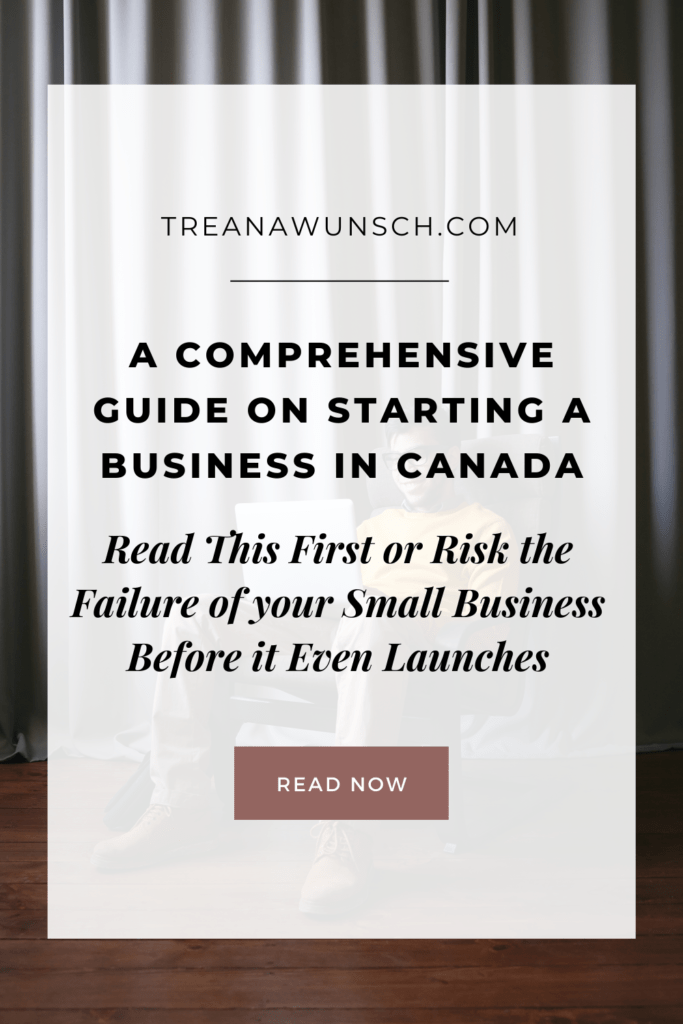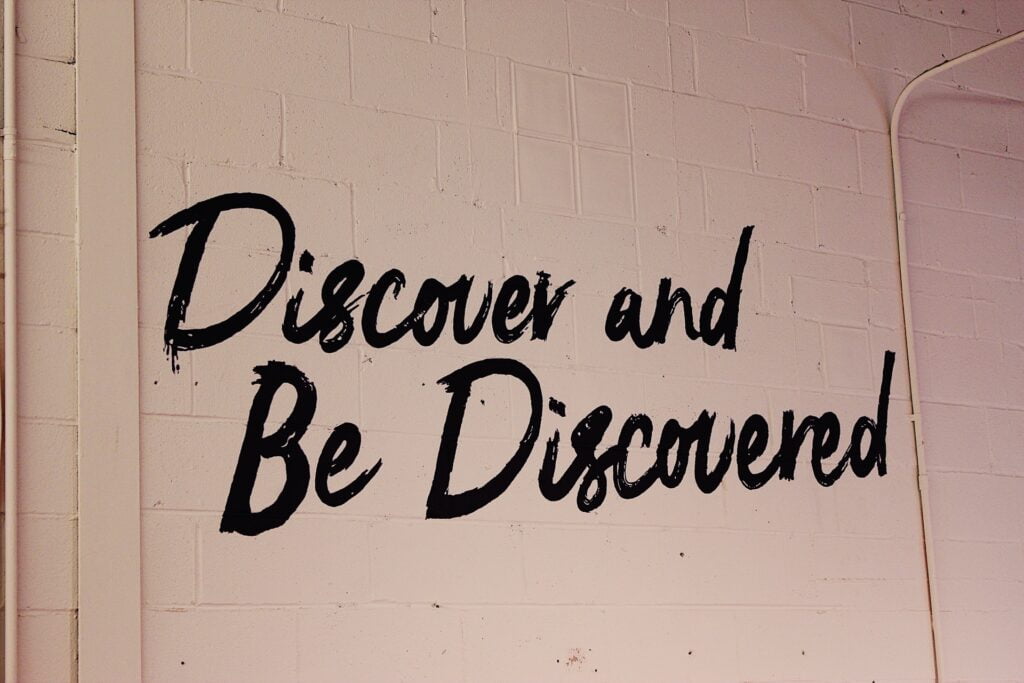Last Updated on July 10, 2023 by Treana Wunsch
Introduction
Obstacles are the frightful things you see when you take your eyes off the goal.
Henry Ford Tweet
Small businesses are the backbone of the Canadian economy. According to a study by the Canadian Federation of Independent Business, 97% of all businesses in Canada are small businesses, employing nearly half of the private sector workforce. These businesses are the primary source of employment for most Canadians and are expected to be the primary source of jobs in the years ahead.
There are many ways to start a small business in Canada. You can create your own product or service, partner with others, or find an existing business to buy or lease. The most important thing is to research the best options for you and make sure you have the right legal and financial protections in place.
Starting a small business in Canada can be an extremely rewarding experience, both personally and financially. However, starting a small business in Canada can also be daunting, especially if you don’t know where to start. In this article, we will outline the steps you need to take to start a small business in Canada. So grab a cup of coffee and settle in because this article is jam-packed with great information on starting a small business.
First, you need to come up with an idea for a business. This can be anything from a new restaurant to a home-based online store.
Starting a business in Canada?
Starting a small business can be an amazing journey, but it’s also important to make sure you’re ready for the challenge. Before you take the plunge, here are a few questions to ask yourself:
Do you know your strengths and weaknesses?
Are you emotionally resilient?
Are you prepared to work more hours?
For more on this, read my article Starting a Business? 8 Honest Questions to Ask Yourself First.
There’s no shame in admitting that you’re not quite ready yet. Just remember that starting a small business is a big commitment, and make sure to do your research before taking the plunge.
If you’re ready to become a small business owner, keep reading.
Come up with a business idea
If you can dream it, you can do it.
Walt Disney Tweet
There are many ways to come up with a business idea. You can look at what is popular or in demand and try to create a similar product or service, you can find a problem that needs solving and offer a solution, or you can come up with an idea that you are passionate about and figure out how to turn it into a business. No matter what approach you take, there are a few key things to keep in mind. Here are some tips on how to come up with a business idea:
1. Do your research. Make sure you have a good understanding of the market and what potential customers want or need. Would a product or service you are offering have any appeal to your target market? How much would people be willing to pay for it?
2. Find the need. What is it that people are not getting from the current options in the market? Is there a gap or need in the market? What would be a viable solution to this problem? Is there a way you can fill this gap?
2. Keep an open mind. Don’t limit yourself to just one type of business or product. Be creative and explore all your options.
3. Think about what you’re good at. Think about what you already enjoy doing and find ways to turn that into a business. For example, if you’re good at writing, then one way you could determine an idea for your business is by writing a book on a topic that interests you.
4. Think about what you want to accomplish. What would you like to accomplish and how could your business help others?
Most importantly, be prepared to work hard when you start a small business in Canada. So before you take the plunge, be sure you’re ready to roll up your sleeves and put in the time and effort it takes to make your business a success.
Want to Learn How to Start a Successful Bookkeeping Business?
Determine the viability of your small business idea
I don't look to jump over 7 foot bars, I look around for 1 foot bars I can step over.
Warren Buffet Tweet
Starting a business in Canada is an exciting venture, but it’s important to make sure your business idea is viable before investing time and money into it. To determine the viability of your small business idea, ask yourself the following questions:
1. Is there a market for my product or service?
2. Is there potential for growth?
3. What are the risks and potential challenges?
4. What do I need to do to get started?
5. How much money will I need to invest?
6. What are the potential rewards?
Answering these questions will help you determine whether or not your small business idea is worth pursuing further.
Research the market

It’s important to do market research before starting or expanding a small business. This research will help you understand your industry, your target market, and your competition. You can gather this information in a variety of ways, including online surveys, focus groups, and interviews with customers.
Once you have this information, you can create a marketing plan that accurately reflects your target audience and what they want. You can also use market research to make decisions about pricing, product development, and other aspects of your business.
Market research is essential for small businesses; it can help you make informed decisions about how to grow your company. By taking the time to do this research, you’ll be able to reach the right customers and achieve success in your business.
When starting a business in Canada, it’s important to do your research and understand the competition. A competitive analysis will help you assess your strengths and weaknesses relative to your competitors. This information can help you determine how to position your business and what marketing strategies to pursue.
To conduct a competitive analysis, you’ll need to gather information about your competitors’ products, pricing, marketing efforts, and target market. You can find this information on forums or social media. You should also analyze the industry trends and history. You’ll find this information at Innovation, Science and Economic Development Canada.
Once you have this information, you can create a table that compares your business with your competitors. The results of a competitive analysis can be used to make decisions about where to focus your energies – whether that’s developing a new product or differentiating yourself from the competition.
Do a risk assessment

Every small business needs to do a risk assessment before starting up. This includes evaluating the risks associated with the products and services you plan to offer, your target market, your competition, your marketing strategy, and your financial situation. By assessing the risks associated with each of these areas, you can make an informed decision about whether or not to move forward with your small business idea.
One of the biggest risks for any small business is losing money. So before starting up, be sure to do a thorough analysis of your expenses and revenue projections. Also, consider the potential for risk in your industry sector. For example, if you’re starting a tech company, you’ll likely face more risk than if you were starting a restaurant.
Another important factor to consider is your competition. Do some research on who they are and what they offer. Can you differentiate yourself from them? What is your competitive advantage? If you don’t know what your competitive advantage is yet, it’s best to seek out the help of an experienced business advisor, who can help you come up with a solid business plan.
Decide on a business structure
When starting a business, one of the first decisions you have to make is what type of business structure to use. There are several types of businesses and business structures to choose from, each with its own advantages and disadvantages. The most common types of businesses are sole proprietorships, partnerships and corporations.
Sole proprietorships are the simplest type of business structure. There is no legal separation between the business and the owner, so the owner is personally responsible for all debts and liabilities incurred by the business. This can be a disadvantage if the business fails because the owner will also lose personal assets. However, sole proprietorships have a number of advantages, including simplicity and low startup costs.
Partnerships are similar to sole proprietorships in that there is no legal separation between the business and the owners. Larger businesses may have a general partnership that includes the partners in the management of the business. If there are no partners, then the owners are general partners, and generally responsible for all debts and liabilities of the business.
A corporation is a legal entity that is separate and distinct from its owners. It has its own rights and responsibilities and can enter into contracts, own property and sue and be sued. In Canada, a corporation is created by filing articles of incorporation with the provincial registry office. The articles must include the names of the directors, the registered office and the objects of the corporation.
If you’re still not sure what structure to choose, consult with a Certified Professional Accountant or a lawyer who specializes in small business.
Decide on a business name
Before starting a small business, you have to decide on a name. This is an important decision because your business name will be the first thing people see and it will stick with you for a long time. Here are some things to consider when choosing a business name:
1. Make sure the name is available as a domain name and social media handle.
2. The name should be easy to remember and spell.
3. The name should be unique and reflect your brand.
4. Be sure to do a name search to make sure no one else is using the same or a similar name.
Once you’ve chosen a name, you can register it at isc.ca. More on that later in the article.
Apply for the required licenses and permits

There are many things to think about when starting a small business, such as licenses and permits. It’s important to understand what is required in order to legally operate your business. The good news is that there are many resources available to help you, including BizPal.
There are different licenses and permits required for different types of businesses. For example, if you are starting a restaurant, you will need a food permit from your local health unit. If you are selling goods, you will need a vendor’s license from your municipality. The type of business you are starting and the location of your business will determine which licenses and permits you need.
Most cities and municipalities will require you to purchase a business license on top of registering with the federal and provincial governments. It’s important to start the process early, as it can take time to obtain all the necessary approvals. The better prepared you are, the less likely it will be that you will encounter problems.
Acquire the proper tools and equipment

Starting a small business in Canada can be an exciting and challenging experience. One of the most important aspects of starting a small business is sourcing the necessary tools and equipment. In Canada, there are a number of options for sourcing tools and equipment. Here is an overview of some of the best ways to source tools and equipment for your small business in Canada.
One option for sourcing tools and equipment is online retailers. Online retailers offer a wide variety of products and often have competitive prices. Another advantage of online retailers is that they typically have a large inventory, so you are likely to find what you need. Additionally, many online retailers offer free shipping on orders over a certain amount.
Another option for sourcing tools and equipment is brick-and-mortar stores. I recommend looking for suppliers that will offer free delivery and set you up with an account in order to get discounted prices. Try to use as few suppliers as possible. The benefit of this is most businesses will award you with loyalty programs. They will also keep a record of your purchases which will make ordering easier.
Also, dedicated sales reps will inform you of offers and stock levels to take some of the work off you. Finding suppliers that you can trust and that have the best interests in mind of your small business will go a long way. You’ll need to follow up less and they’ll almost seem like an extension of your business.
Creating a strategy for purchasing can save you a lot of time and money. Building good relationships with suppliers will allow you to have good credit with them, they will be more inclined to treat you well and give you breaks on pricing. For this reason, local companies are better to approach first. Unless the online retailers have loyalty programs in place that compete with the local companies.
Purchase appropriate insurance
Another important consideration when starting a small business is insurance. You will need to protect your business against potential risks by purchasing the appropriate insurance policies. There are a number of different types of insurance available, so it is important to speak with an insurance broker to find the policies that are right for your business. This article by Wagepoint gives an overview of some of the types of insurance small businesses in Canada may need.
Most businesses with employees will need to register with their local worker’s compensation board. Workers’ compensation for small businesses in Canada can be a confusing topic. Each province has a worker’s compensation board. They are government agencies that administer the worker’s compensation systems.
These systems provide benefits to workers who are injured or become ill as a result of their job. Each province has different regulations and benefits so it’s important to contact the one in the province where your business will be operating. If your small business will be operating in more than one province, you’ll most likely need to register in each province. The premiums are usually reasonable so it’s worth doing even if it’s not required for your business. All businesses are different so find a good broker you can trust.
Market your Canadian small business
Marketing is no longer about the stuff that you make, but about the stories you tell.
Seth Godin Tweet
Despite their importance to the economy, small businesses often have a difficult time competing against larger businesses. One way they can level the playing field is by using effective marketing techniques.
There are many different ways to market your small business in Canada. A lot of people are under the impression that you need to spend a lot of money in order to gain exposure for their business. This doesn’t have to be the case. If you find the right strategy for your particular small business, you may find it easy to gain exposure by spending very little on your advertising campaign. Here are some great tips to help you get started with your small business marketing campaign:
Write a press release and send it out to local media. This is a great method to start getting more exposure for your business. The local media is a great way to get exposure and it will not cost you a lot of money. You will be able to get the press releases sent out to over 200 newspapers and magazines that are located all across Canada.
Marketing is an important part of any business, no matter how big or small. However, when it comes to small businesses in Canada, there are a few different types of marketing that are most effective. One type is traditional marketing, which includes print ads, radio and TV commercials, and direct mail. Another type is experiential marketing, which involves creating unique experiences for customers that will make them want to come back again and again.
My favourite type of marketing is digital marketing. This can include creating a website or blog, using social media platforms such as Facebook or Twitter, or running pay-per-click (PPC) ads on search engines such as Google or Pinterest. Find out more by reading my article 7 Effective Digital Marketing Strategies for Small Businesses in Canada.
All of these types of marketing can be successful for small businesses in Canada, but it’s important to choose the right type for your specific business and target market.
Set your pricing structure

In order to set a pricing structure when starting a small business in Canada, you need to take into account your business’ costs, your desired profit margin, and the market conditions. You’ll also want to consider how much you’re willing to charge for your products or services. Generally, businesses charge more for their products and services during periods of high demand and less during periods of low demand.
You’ll also want to make sure that your prices are competitive with those of your competitors. One approach is to base your prices on what your competitors are charging. But this can be tricky, since different businesses may have different costs and needs. It’s important to find a pricing structure that works for your specific business.
Know your costs. This includes the cost of materials, labour, shipping, and any other associated expenses. Don’t forget to factor in taxes and overhead costs as well.
Do your research. Find out what similar products or services cost elsewhere. You will determine some of this data when you do your market research as mentioned earlier in this article. This is one of the most difficult aspects of starting a business. You’re not going to get it right the first time so don’t be afraid to make adjustments. Be sure to stay on top of your finances so you know whether or not you’re making money.
Build a professional support team

When you’re starting and running a small business, it’s important to have a professional support team in place. This team can provide you with the resources and advice you need to make your business successful. Here are some of the members of your professional support team:
Bookkeeper
When it comes to running a small business, bookkeeping is key. A meticulous bookkeeper will do more than just enter transactions. They should also provide monthly financials and identify opportunities for improvement. But finding the right person to handle your books can be tricky.
Ask around for recommendations. Chances are, you know someone who knows someone who can recommend a good bookkeeper. Check with your local Chamber of Commerce or Small Business Association. They may have a list of qualified bookkeepers in your area. Ask the bookkeeper questions about their experience and what they would do to help improve your books. Get references and check them out before making a decision.
To find out more about why hiring a bookkeeper is key for small business success, read my article Why Hiring a Bookkeeper Can Help Your Small Business Succeed.
Accountant
Yes, you need both a bookkeeper and an accountant for your small business. Their roles cross over slightly but for the most part, are very different. An accountant is responsible for preparing financial statements, filing corporate taxes, managing budgets and providing tax guidance to clients. A bookkeeper is responsible for recording financial transactions, reconciling accounts and preparing invoices. Your accountant and bookkeeper should work together.
An accountant can also help you stay compliant with all the financial regulations that apply to your industry. And if you ever have any questions or need advice on how to handle a financial situation, they’ll be there to help. So how do you go about finding a good accountant for your small business?
The first step is to talk to other small business owners who’ve had experience with their accountant. Ask them if they like the accountant, what he or she does well, and whether they think the price is fair. Asking for references from your accountant is also a good idea. Find out what the accountant specializes in and make sure it fits your small business needs.
Lawyer
Starting a small business in Canada can be an extremely rewarding experience, but it’s important to remember that it’s also a complex process. There are many different government regulations and licensing requirements you need to comply with, and if you’re not familiar with them it’s easy to make costly mistakes. That’s where a lawyer can help.
A good business lawyer will guide you through the process of starting your business, helping you to comply with all the relevant regulations and ensuring that your business is set up in the most tax-efficient way possible. They can also provide invaluable advice on things like contracts, employee relations, and intellectual property protection. But how do you find a good lawyer for your small business?
Your business network is a great resource for finding quality legal representation. Ask your colleagues, clients, and other professionals for recommendations. Do some online research to find lawyers who specialize in small business law. Look for reviews from past clients to get an idea of the firm’s strengths and weaknesses. Meet with potential lawyers. Once you’ve narrowed down your list of candidates, meet with them in person to get a feel for their style and expertise.
Insurance Agent
Small businesses create jobs, support local communities, and drive innovation. But running a small business can be risky. One way to protect your business is to have good insurance.
There are many different types of insurance available for small businesses. Most provinces have a program that offers discounted rates for businesses that have fewer than 50 employees. Some common types of insurance for small businesses include property insurance, liability insurance, and product liability insurance.
Property insurance covers damage to your business property, such as your building or equipment. Liability insurance protects you from lawsuits if someone gets hurt on your property or as a result of your products or services. Product liability insurance covers damages caused by defective products you sell or distribute.
It’s important to shop around and compare rates before you buy any type of insurance policy.
Financial Advisor
A good financial advisor can be a vital part of your Canadian small business. They can provide you with advice on how to grow and manage your finances, as well as help you make smart investment choices.
Financial advisors can help you develop a long-term financial plan that meets your specific needs. They can provide you with advice on how to save money and reduce expenses. Financial advisors can help you identify and invest in opportunities that will help your business grow. They can also act as a sounding board for your business ideas, and offer guidance on whether or not they are viable.
When it comes to finding a good financial advisor for your small business, there are a few key things you need to keep in mind. First, make sure you interview several advisors and ask lots of questions. This will help you find someone who is a good fit for your business and who understands your specific needs.
Second, be sure to check out their qualifications and experience. Advisors should have a CPA designation or be licensed to sell securities. Third, ask around for referrals. Other small business owners will likely have some good recommendations for you.
Finally, take the time to review the advisor’s fees and investment philosophy so that you’re comfortable with what they’re proposing.
Getting a great professional team together right from the beginning will put your Canadian small business on the path toward success.
Write a business plan

One of the benefits of having a business plan is that it forces you to take a step back and think about all the different aspects of your business. By doing this, you can identify any potential weaknesses or areas that need improvement. For a small business, it’s essential to have a business plan because it can help you stay on track, make better decisions, and attract investors.
A business plan doesn’t have to be complicated – in fact, you can create a simple version yourself. The most important thing is to include the following information: your company overview, market analysis, product/service description, marketing and sales strategy, operations strategy, management team bio, financial projections, and risk assessment.
If you want to be notified when my guide on how to write a business plan for Canadian small businesses is available to purchase, sign up below.
How to Write a Kick-Ass Business Plan
Secure financing

In order to start and grow a small business in Canada, you’ll likely need some financial backing. First, you should assess your needs and make a plan. What do you need money for? What are your long-term goals for the business? Once you have a clear idea of what you need, you can start developing a funding proposal. The proposal should include a detailed business plan, financial statements, and information on how the loan will be used.
Government grants and loans are a common source of small business funding, but there are also many private sector lenders who can help. It’s important to research all your options and compare interest rates and repayment terms before choosing a lender. Other options are government funding programs like the Business Development Bank of Canada (BDC) or Export Development Canada (EDC). These programs offer financing, advice, and support to small businesses looking to start up, expand, or export their products or services.
Another option is angel investing. This involves wealthy individuals or groups investing money in startup companies in exchange for a share of ownership in the company. Perhaps the best known and most widely used option is venture capital. Venture capitalists provide start-up companies with a lump sum of money in exchange for a share of ownership in the company. This article from BDC outlines available financing options in more detail.
Register with federal and provincial governments

When starting a Canadian small business, you must register with the provincial government and the federal government. This process can be overwhelming, but with the right resources, it can be easy to get started.
ISC has made the process much easier recently for small businesses in Saskatchewan. If you follow the process you’ll be registered for the Corporate Registry (ISC), the Ministry of Finance (this is where you register for a PST number) and will automatically be registered for the Canada Revenue Agency Business Number program. There is also the option to register for WCB at the same time. Other provinces will have to register separately for these programs.
Open a business bank account
There are a number of reasons why your Canadian small business should have a dedicated bank account. First, it helps to keep your business and personal finances separate, making it easier to track your expenses and income. Secondly, a business bank account can help you qualify for small business tax deductions and credits. And finally, a dedicated account can make it easier to get financing for your business.
After doing bookkeeping for several small businesses, I have found that TD and Scotiabank have the best business bank accounts. They are easy to set up, the fees are reasonable and there isn’t as much hassle as other institutions.
If you are operating as a sole-proprietor and don’t require a business chequing account but want to keep your business transactions separate (which I highly recommend) Tangerine is the best option. Open a Tangerine account with my Orange Key 54023745S1 and get a $50 bonus. It’s incredibly easy to set up online and the features are extensive. I’ve used Tangerine for years and love it.
Develop your product or service

Now comes the fun part. Developing your product or service. If you’ve come this far you’ve probably already done some development but now it’s really time to hone in. In order to develop a product or service for your Canadian small business, you need to do some research into what the market is currently offering and what gaps you can fill.
You also need to make sure that you understand the needs of your target market and how best to reach them. Once you have a clear idea of what you want to offer, it’s time to start planning the logistics of bringing your product or service to market. First, you’ll need to come up with a prototype or draft of the product or service. You can then test it with potential customers to get feedback. You’ll then you’ll make any necessary changes and launch.
Don’t forget that your product or service should always be under development. You should always be improving on it in order to provide the best value to your customers and stay in front of the competition.
Find a location

The location of a business is important because it can determine the success or failure of the company. The location can also affect how customers view the company and its products or services. In order to choose the best location for a business, it is important to consider several factors such as population density, competition, and customer traffic.
For some small businesses such as restaurants and retail shops, the location is the most important factor in their success. The first consideration for locating a small business is the target market. A business should identify its customers and then research where they live, work, and shop. Once the target market is identified, the business needs to consider what type of environment those customers prefer.
In order to find the location for your Canadian small business, there are a few key things you need to take into account. One of the first things you’ll need to do is assess your business needs and what type of environment will be best for your company. Once you’ve narrowed it down, research the areas that fit your criteria and take a closer look at the cost of doing business in each one. You’ll also want to consider the workforce availability and attitude in each location, as well as access to resources like banks, clients, and suppliers. By taking all of these factors into account, you can make an informed decision about where to set up shop and get your business off the ground.
Hire and train employees
You don't build a business, you build people then people build the business.
Zig Zilgar Tweet
One of the most important factors in the success of a small business is the quality of its employees. Hiring good employees is essential for a small business because they play a key role in its success or failure. Good employees can help a small business grow by increasing sales and profits, and by creating a positive work environment that encourages employee productivity and loyalty.
Bad employees, on the other hand, can damage a small business by decreasing sales and profits, and by creating a negative work environment that leads to decreased employee productivity and turnover. So how do you find good employees?
Finding good employees for your business can be a daunting task. You need to find people who have the skills you need, who will work well with your team, and who will be a good fit for your company culture. Start by creating a job description that outlines the skills and qualifications you are looking for. This will help you to narrow down the search and focus on candidates who have the right skills for the job.
Next, post the job ad online and make sure it is visible to as many people as possible. You can also use job boards or social media sites to find qualified candidates. Screen all of the applicants carefully and conduct interviews with the top candidates. Ask them questions about their skills, experience, and what they are looking for in a job.
Employees are the most important resource for your small business. The sooner you realize this the closer you’ll be to success. The more you invest in your employees, the more they’ll invest in your business. One of the most important things you can do as a small business owner is to invest in employee training.
Employee training can help your business in a number of ways. First, it can help you develop a well-trained and competent workforce. This will improve productivity and efficiency, and reduce the likelihood of costly mistakes. Second, employee training can help you keep up with changing trends and technologies. Training helps your employees stay up to date on the latest technologies, and it can also help you avoid potential pitfalls that could harm your business.
Conclusion
Whenever you see a successful business, someone once made a courageous decision.
Peter Drucker Tweet
Starting a small business in Canada can be a great way to achieve financial stability and success. By following the advice of this article, you can increase your chances of launching a successful business. Remember to do your research, create a business plan, and build solid relationships.
If you have any questions or I missed something, please comment below. Please share with someone who is thinking about starting a business.
P.S. If you found this article helpful you can thank me by buying me a coffee.








